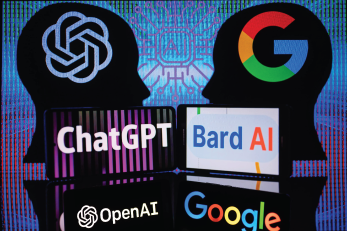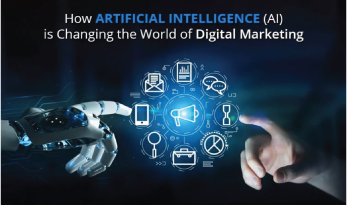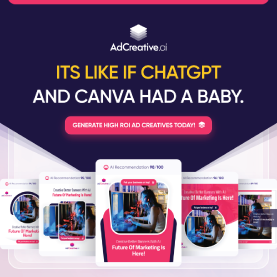How AI is Revolutionizing Content Creation in 2025
Let’s be real—AI is no longer some futuristic concept sitting on the horizon. It’s here, and it’s flipping the script on content creation. A few years ago, AI-generated content felt robotic, stiff, and honestly, a little soulless. But fast forward to 2025, and it’s a whole different game. The brands that are thriving today aren’t just using AI as a tool—they’re leveraging it as a strategic partner, blending automation with human creativity to create content at scale without sacrificing authenticity.
I remember when I first experimented with AI-driven content tools. I thought, “Cool, I can crank out 10 blog posts in an hour.” But guess what? The content was generic. It lacked personality, depth, and the human touch that keeps readers engaged. That was my first hard lesson: AI doesn’t replace great storytelling—it amplifies it. The real winners in this space are the ones who know how to take AI’s efficiency and layer it with their unique voice, expertise, and insights.
One major shift we’re seeing is how AI is personalizing content at an insane level. It’s no longer about blasting out one-size-fits-all blog posts or social media updates. AI can now analyze audience behavior in real time, optimizing messaging based on individual preferences. Think about how Netflix recommends shows or how Spotify curates playlists—brands are now doing the same with content. The result? Higher engagement, more meaningful connections, and, ultimately, better conversions.
Another game-changer? AI-powered SEO. Let’s face it—search engine optimization used to be a guessing game. You’d throw in some keywords, pray to the Google gods, and hope for the best. Now, AI tools predict search trends before they even happen. They analyze user intent, generate highly relevant topic clusters, and even tweak content dynamically based on algorithm shifts. If you’re not using AI-driven SEO in 2025, you’re basically leaving money on the table.
But here’s the thing—AI isn’t just about speed or optimization. It’s unlocking new creative frontiers. We’re seeing AI-generated videos, hyper-realistic deepfakes (used ethically), and even AI-assisted brand voices that feel eerily human. Brands that once struggled with scaling high-quality content are now producing Hollywood-level visuals and interactive experiences at a fraction of the cost.
The takeaway? AI isn’t coming for your job—it’s coming for your inefficiencies. If you can harness its power while keeping your creativity and authenticity intact, you’re not just staying in the game—you’re redefining it.
The Current State of AI in Content Creation

AI’s integration into content creation isn’t new, but its capabilities have grown exponentially in recent years. Tools like ChatGPT and Jasper are enabling businesses to generate high-quality written content in minutes. AI algorithms now power personalization engines that deliver tailored experiences, while chatbots like ChatGPT are redefining customer interactions. The rise of AI in marketing isn’t just about convenience—it’s about precision, creativity, and scale.
Recent stats underscore this momentum. According to a 2024 survey, 75% of marketers reported using AI tools in their workflows, with 60% claiming AI significantly improved efficiency and results. Industries like e-commerce, entertainment, and healthcare are leading the charge, showcasing AI’s versatility across sectors.
Key AI-Driven Trends Transforming Content Creation in 2025
1. Hyper-Personalized Content

Consumers crave content that speaks directly to them, and AI makes this possible on a massive scale. By analyzing data points like browsing history, purchase behavior, and engagement patterns, AI can craft messages that resonate with individual users. Hyper-personalization isn’t just a buzzword; it’s the new standard for customer engagement.
2. Generative AI for Creative Assets

Generative AI tools like DALL·E and MidJourney are revolutionizing creative processes. From designing unique visuals to writing compelling ad copy, these tools empower marketers to produce high-quality content faster than ever. Brands are using AI to create tailored videos, infographics, and even music, pushing the boundaries of creativity.
3. Predictive Content Strategies

AI-driven predictive analytics enable marketers to anticipate audience needs and preferences. By analyzing historical data and trends, AI can recommend the best types of content, optimal publishing times, and platforms to use, ensuring maximum impact.
4. Interactive and Immersive Experiences

Immersive technologies like augmented reality (AR) and virtual reality (VR) are becoming more accessible, thanks to AI. These technologies allow brands to create engaging experiences, such as virtual try-ons or interactive storytelling, making content more memorable and shareable.
5. Voice and Conversational AI

With the proliferation of voice assistants like Alexa and Google Assistant, voice search and conversational AI are gaining traction. Marketers are optimizing content for voice queries and using chatbots to provide personalized, real-time assistance to customers.
Tools and Technologies Powering AI Content Creation

AI’s impact is amplified by the tools that bring its potential to life. Platforms like Copy.ai and Jasper simplify text generation, while Adobe Firefly is pushing the boundaries of AI-assisted design. For video content, tools like Synthesia enable the creation of realistic AI-generated presenters. These technologies are no longer niche; they are becoming essential components of a marketer’s toolkit.
Emerging platforms like RunwayML and DeepMotion are also worth watching, as they offer advanced capabilities for animation and motion graphics. Marketers must stay updated on these tools to remain competitive in a rapidly evolving landscape.
Benefits of AI in Content Creation

The advantages of AI in content creation are undeniable:
- Efficiency: AI automates time-consuming tasks, allowing marketers to focus on strategy and creativity.
- Creativity: Generative AI provides fresh ideas and unique outputs that might not occur to human creators.
- Accuracy: Data-driven insights ensure content is relevant and targeted.
- Scalability: AI enables brands to produce high volumes of content without compromising quality.
These benefits make AI a powerful ally for marketers looking to maximize ROI and build deeper connections with their audiences.
Challenges and Ethical Considerations

Despite its promise, AI in content creation presents challenges:
- Content Authenticity: As AI-generated content becomes indistinguishable from human-created work, ensuring authenticity and originality is critical.
- Bias in AI Models: AI systems can inadvertently perpetuate biases present in training data, leading to unintended consequences.
- Balancing Automation and Human Touch: While AI excels at efficiency, human creativity and empathy remain irreplaceable in storytelling.
- Privacy and Data Security: The reliance on user data for personalization raises concerns about privacy and ethical data use.
Marketers must address these challenges proactively to harness AI responsibly and effectively.
Actionable Steps for Marketers to Leverage AI in 2025

- Invest in AI Tools and Training: Equip your team with the right tools and ensure they understand how to use them effectively.
- Start Small: Begin with pilot projects to test AI’s capabilities and measure its impact.
- Combine AI with Human Creativity: Use AI to enhance, not replace, human-driven ideas.
- Stay Updated: Follow industry trends, attend conferences, and experiment with emerging technologies.
The Future Beyond 2025: What’s Next?

Looking beyond 2025, AI’s role in content creation will only grow. We may see:
- Deeper AI-Human Collaboration: AI acting as a creative partner, augmenting human skills.
- Advanced Personalization: Content tailored to emotional states and real-time needs.
- AI-Driven Storytelling: Fully AI-generated narratives that adapt dynamically to audience responses.
The possibilities are endless, and the pace of innovation shows no signs of slowing down.
Conclusion

AI is not just a tool for content creation—it’s a catalyst for transformation. By embracing AI-driven trends, marketers can unlock new levels of creativity, efficiency, and audience engagement. As we navigate the opportunities and challenges of 2025, one thing is clear: the future of content creation is here, and it’s powered by AI. How will your brand leverage this revolution to stay ahead?


